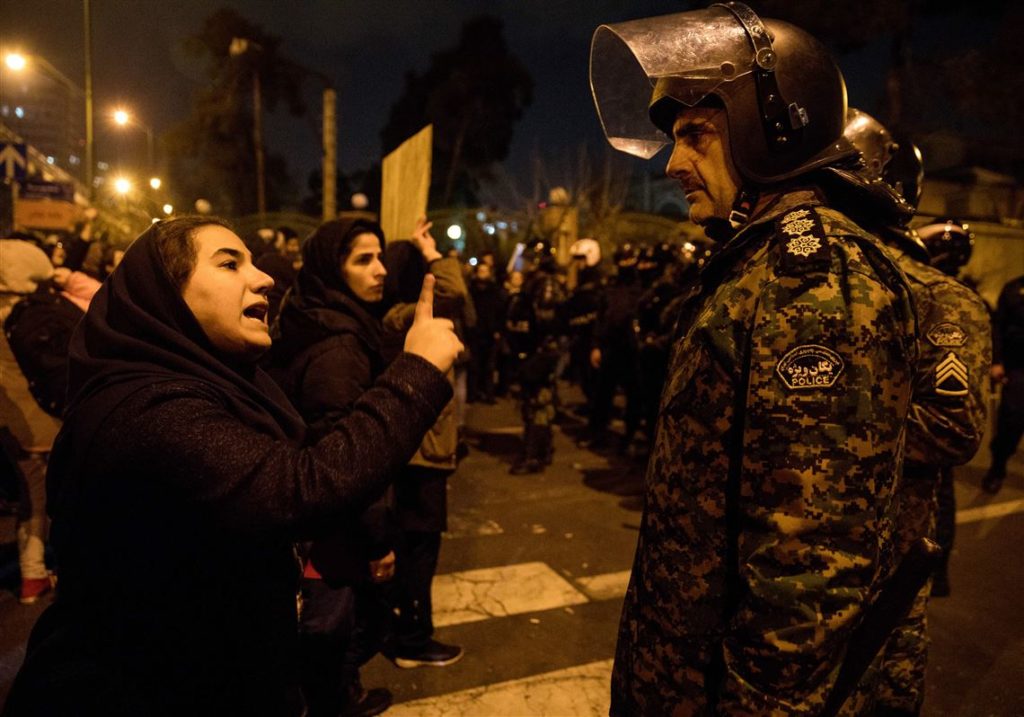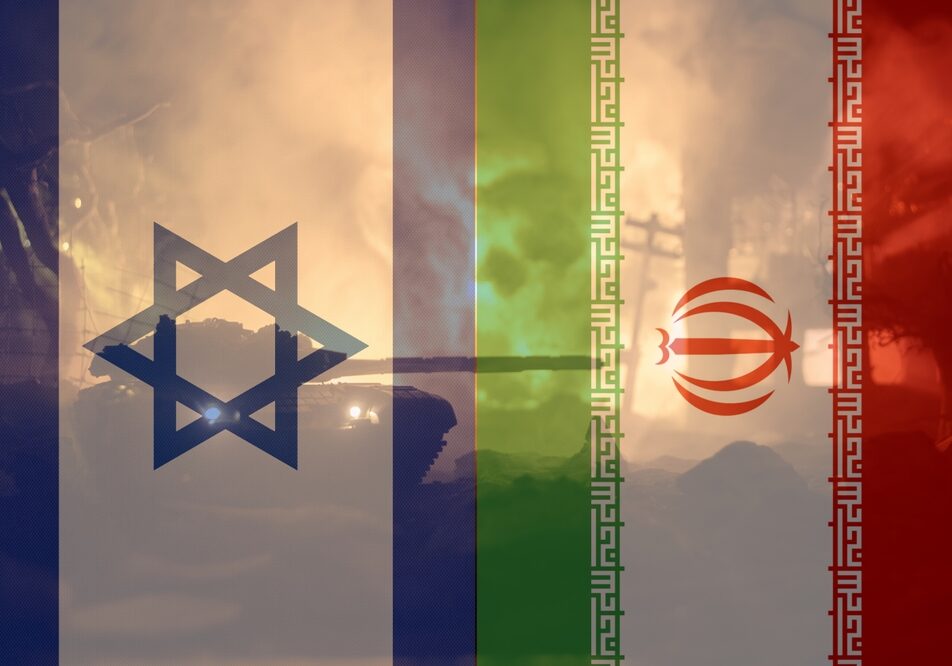Australia/Israel Review
Iranians resist Teheran’s “resistance”
Feb 3, 2020 | Ben Cohen

Once again, talk of regime change is in the air inside Iran. Not since the crushing of the 2009 student-led protests has the Islamic Republic, as of this year entering the fifth decade of its existence, looked so vulnerable.
The immediate cause of the latest spate of protests was, of course, the shooting down by the Islamic Revolutionary Guard Corps (IRGC) of a Ukrainian International Airlines flight from Teheran to Kiev on Jan. 8, killing all 176 passengers onboard – more than 50 of whom were Canadian citizens intending to catch a connecting flight to Toronto.
The downing of the Ukrainian jet followed the audacious military operation five days earlier in neighbouring Iraq, in which Maj. Gen. Qassem Soleimani, Iran’s best-known and most widely feared commander, was successfully targeted by a US airstrike.
Critics of that operation, including the Democratic Party leadership in the US Congress, fretted that the assassination of Soleimani would inflame the anger of the Iranian people against the United States. One Canadian CEO – grieving for the tragic loss on the downed jet of the wife and children of an Iranian colleague – grabbed headlines with a flurry of tweets excoriating the administration of US President Donald Trump (“a narcissist in Washington”). The passengers were all dead, charged Michael McCain, the boss of Canada’s Maple Leaf Foods, because of an “ill-conceived plan [the assassination of Soleimani] to divert focus from political woes.” He was referring to the impeachment proceedings against Trump on Capitol Hill.
However, thousands of Iranian citizens regard the same matter in very different terms. In the view of the protesters now on Iranian streets, it was Soleimani’s foreign adventures in Iraq, Syria, Lebanon and Gaza that were designed to “divert focus from political woes” that were enveloping the Islamist regime at home. Indeed, this has been a key complaint over the last decade whenever protests inside Iran have broken out. In 2018, demonstrators coalesced around the chant “Not for Gaza. Not for Lebanon. I give my life for Iran”; in 2019, as the protests got angrier, some marchers even snarled the worlds “Death to Palestine” at the lines of riot police ranged in front of them.
As unsettling as “Death to Palestine” might sound to Western ears, the hostility here was not directed at the Palestinian people so much as on the Islamic Republic’s ideology, which has invariably portrayed the Palestinian struggle as the most critical test of Muslim “resistance” to Western domineering. Ironically, it is the regime’s fixation with the cause of Palestine that has spurred domestic Iranian resistance to the domineering of the mullahs.
In 2015, a few weeks after the United States and five other world powers reached their ill-fated deal with Iran on its nuclear program, Ayatollah Ali Khamenei – the Islamic Republic’s so-called “Supreme Leader” – published a long book of speeches on the evils of Jews and Zionism titled Palestine, which was dutifully promoted by Iran’s official media. In one speech – delivered at the shrine of the Islamic Republic’s founder, Ayatollah Ruhollah Khomeini – Khamenei declared: “[N]o other international issue is more important than Palestine in the world of Islam.”
As Khamenei explained in another speech contained in the same volume, the Islamic revolution would be compromised as long as the Jewish state remained in existence. “Without winning the battle of Palestine, our victory is incomplete,” he declared. “Since the first days of his mission and struggle in Iran, our deceased great imam [Khomeini] gave the first priority to the issue of Palestine.”
This last observation is certainly true. As the late scholar Professor Robert Wistrich pointed out in A Lethal Obsession, his final book on antisemitism, “in Khomeini’s eyes, Jews were a major cause of ‘Westoxification’ in Muslim society, an important obstacle to the recovery of its pristine Islamic identity. He associated them with American materialism, the acquisitive mania that had seized Iran’s middle classes during the 1960s, and the Shah’s repressive rule which favoured Western interests and Israel.”
In a tract he published in 1970, Khomeini articulated these principles even more succinctly. “We must protest and make the people aware that the Jews and their foreign backers are opposed to the very foundations of Islam and wish to establish Jewish domination throughout the world,” he wrote.
Antisemitism, then, forms an integral part of the Khomeinist political theology that has driven Iran since the 1979 revolution. The thousands of Iranians who have been caught on camera in recent weeks refusing to trample the US and Israeli flags (another ritual as old as the revolution itself) are not, therefore, simply waving a middle finger at their rulers on their most sacred concern: They are rejecting the basic principles and worldview of the Islamic Republic. And they are proving, yet again, that the people of Iran should not be confused with the Islamic Republic that rules them.
In a famous essay of 1859, John Stuart Mill, one of the foundational thinkers of modern Western liberalism, argued stridently against military interventions in the affairs of other countries, insisting that there were virtually no circumstances that could justify one country invading and overthrowing the regime of another. Even so, Mill continued, discussion of foreign engagement was at least warranted in circumstances where the people of the country in question had shown themselves willing “to brave… danger for their liberation.”
During the course of this month, growing numbers of Iranians have shown themselves prepared to do exactly that.
There are no obvious answers to the question of what Western countries should do in Iran, as there are all sorts of good reasons why they should avoid full-scale war. For most of the last 40 years, America has sought to contain the Islamic Republic through economic sanctions and a military presence in the wider Middle East. It has now added to that pressure by confirming that the option of eliminating Iranian leaders is a part of its arsenal.
Compared to five years ago, then, an uprising of Iranians against the regime is taking place in a much more favourable international environment, thanks to the radical shift in Iran policy under Trump. Iran’s rulers certainly know how vulnerable they are, which is why they want the rest of us to believe that they will take any measures necessary to survive, even as their revolutionary mission dies.
Ben Cohen is a New York-based journalist and author who writes a weekly column on Jewish and international affairs for the Jewish News Syndicate (JNS). © JNS (www.jns.org), reprinted by permission, all rights reserved.
Tags: Iran






